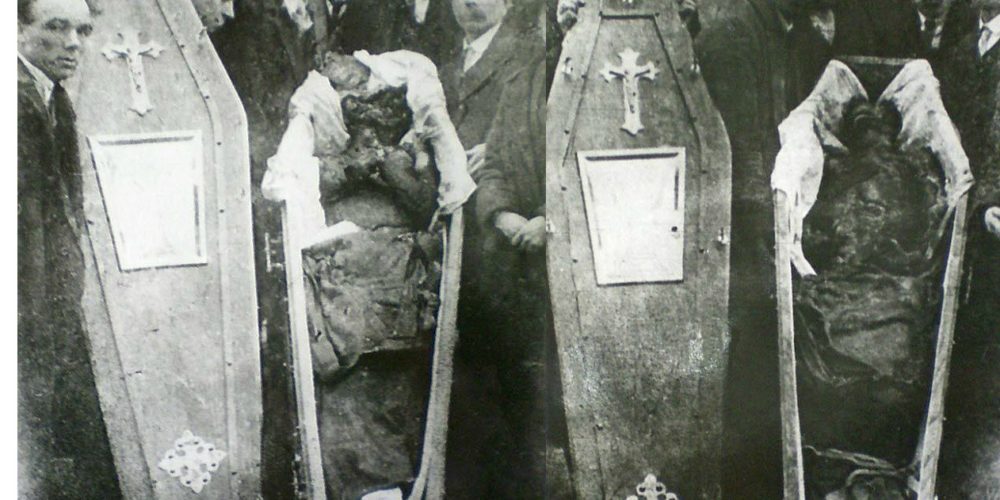There appears to be simply no depth to which the establishment will not sink to show what faithful servants they are to imperialism and in particular to British imperialism.
The Irish people endured centuries of colonial and imperialist domination. They endured mass starvation, violent oppression, the destruction of our language and culture; but we continued to resist. We also experienced those Irish who collaborated with our oppressors, and dealt with them accordingly.
The latest quisling approach by the Fine Gael government is the intention, for the first time, to hold a commemoration on 17 January for those members of the Royal Irish Constabulary and the Dublin Metropolitan Police who were killed in our War of Independence defending the British empire.
The minister for justice, Charlie Flanagan, stated that the reason for this commemoration was that “they were doing what police officers do. As they saw it, they were protecting communities from harm. They were maintaining the rule of law”—thus presenting the war for our country’s independence as some sort of minor squabble and the actions of a small disgruntled group.
Who were the collaborators who made up the RIC and DMP? What were they protecting the people from? Whose laws where they upholding?
During the War of Independence, Ireland was under martial law, with summary executions of both ordinary citizens and those who had taken up arms against British occupation. The Irish people had no “rights” to be protected. After the appointment of Field-Marshal John French as governor-general in May 1918 our people experienced a new level of barbarity and oppression, inflicted on them by a new type of military administration in Ireland.
As a recent letter by Dr Brian Murphy to the national papers put it: “Following a proclamation of Lord French, on May 16th, 1918, the police were responsible for arresting and imprisoning without trial hundreds of Sinn Féin activists and sympathisers . . . Lord Wimborne, the former lord lieutenant wrote in the Times of London, on May 25th, 1919, that: ‘popular leaders were incarcerated and a military regime was established.’”
The RIC was an integral part of the British state’s oppressive apparatus. In the first Dáil Éireann on 10 April 1919 it was reported that the RIC “are no ordinary civil force, as in other countries. The RIC, unlike any police force in the world, is a military body armed with rifle and bayonet and revolver as well as baton . . . They are spies in our midst.”
The letter goes on to quote Prof. Eoin MacNeill, who declared that “the police force in Ireland are a force of spies. The police in Ireland are a force of traitors, and the police in Ireland are a force of perjurers.” He concluded that “you should take such measures as will make police government in this country by the enemy impossible.”
On 17 January 1920 the following advertisement appeared in the British press seeking members for the proposed RIC Special Reserve—later known as the Black and Tans—made up of demobbed soldiers just back from the war in Europe: “Do you want a job? You can join the R.I.C. today.”
This proposal is an appalling affront to all those who fought and those who died in the struggle for our freedom.






